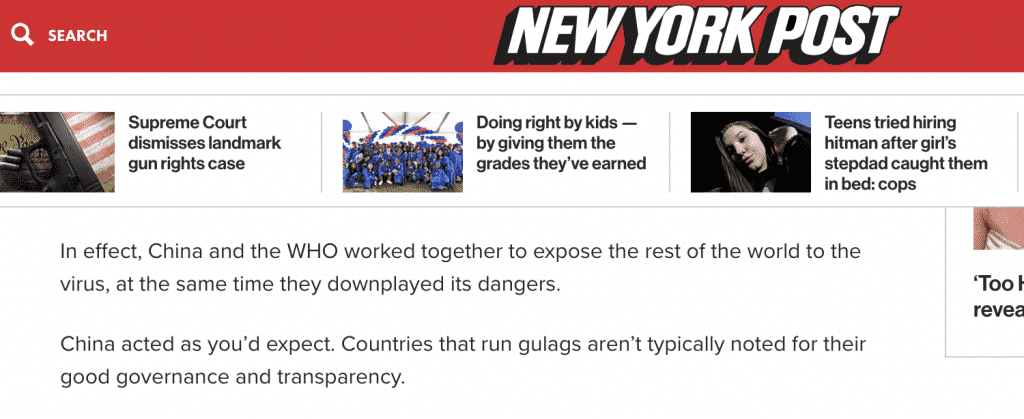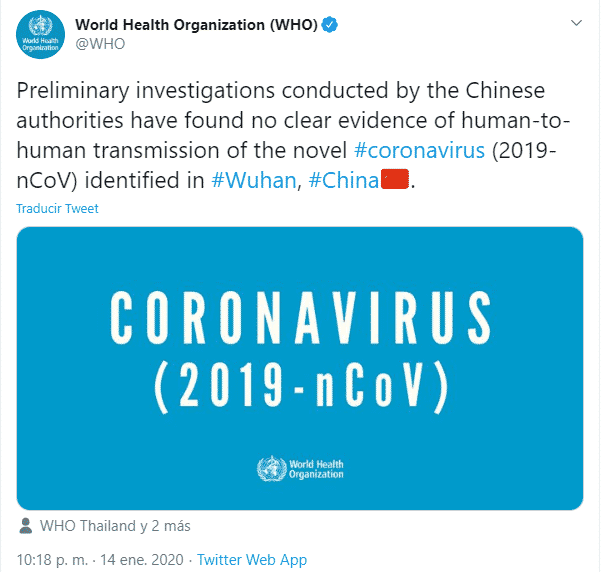Australian Foreign Minister Marise Payne has called for an independent international review of the response to the Covid-19 pandemic. Payne did not single out the World Health Organization (WHO) for investigation. However, when asked whether the WHO should lead the investigation, Payne replied, “No. That strikes me as a bit poacher and gamekeeper.”
The Australian government’s comments follow Donald Trump’s decision on 15 April to cut US funding to the WHO, itself essentially the natural outcome of a concerted campaign against the organization by some.
The New York Post, for example, reported that “China and the WHO worked together to expose the rest of the world to the virus.”

Such coverage is suboptimal at best, and potentially quite damaging to the international effort to handle this horrible pandemic.
Much criticism has centred on the WHO’s Director-General, Dr Tedros Adhanom. Dr Adhanom is a microbiologist and public health researcher, who completed a PhD on malaria control in regional Ethiopia, his home country. Whether or not he has excelled in his role is not core to whether or not the WHO should continue to be supported. The WHO is bigger than one man.
Having said that, the inability for the WHO to learn lessons from Taiwan is inexcusable, and the refusal to answer questions about it is a disgrace.
The problem with the campaign against the WHO is that it undermines international solidarity. A/Prof Kamradt-Scott of Sydney University noted the possibility that the cuts could “cause people in low income countries to lose access to vital medicines and health services.” Personally, I find it appalling when the powerful play politics and the burden is borne by the poorest.
At the same time, one should never lose an opportunity for constructive criticism. In this case, the core of the problem is the WHO’s unwillingness to maintain a critical stance with respect to the information emerging from China in the early weeks of the pandemic.
The WHO did not report on its fact-finding mission to Wuhan until mid-February. Until then, in the words of The Atlantic, the WHO was “getting its information from the same Chinese authorities who were misinforming their own public, and then offering it to the world with its own imprimatur.”
The following widely-cited tweet is the most shocking example:

The New York Times reported, by 31 December 2019 they Chinese doctors had identified a cluster of “drug-resistant pneumonia” cases of uncertain origin. Where a leading newspaper is promulgating information of core importance so much earlier a than the World Health Organisation, there needs to be a recognition of failures.
The issue is not China, as US hawks propose. Chinese researchers’ ability to determine and then publicly upload the coronavirus’ genetic sequence is an expression of the marvel of modern medical science. This issue is the same issue that plagues the USA. The issue is when the government decides controlling information and minimising perceptions of problems, is more important than the truth. We note that, unlike his American counterpart, the Chinese president refrained from making “sarcastic” comments (such as suggesting doctors could look at injecting disinfectant into patients.)
Now more than ever, the WHO should continue to be supported in its hugely important global mission. But it should improve the accuracy and speed with which it reports information to the global community. To defeat this virus we will need to suppress politics, and elevate the truth at all times. It is no easy mission.